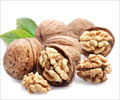The American Heart Association says that it may be beneficial to include omega-6 polyunsaturated fatty acids (PUFAs), found in vegetable oils, nuts and seeds, in diet plans charted for keeping the heart healthy.
The new Science Advisory report suggests that consumers aim for at least five to ten per cent of energy (calories) from omega-6 PUFAs.It further states that one can derive most benefit when omega-6 PUFAs replace saturated or trans fats in the diet.
The report adds that precise recommended daily servings will depend on physical activity level, age and gender, but range between 12 and 22 grams per day.
The AHA report also addresses the recent controversy that omega-6 fatty acids may actually increase inflammation and thereby increase rather than reduce cardiovascular risk.
The association insists that along with acids involved in the early stages of inflammation, anti-inflammatory molecules are also formed, and, thus, it is incorrect to view the omega-6 fatty acids as pro-inflammatory.
Upon reviewing epidemiological data, the research team behind the report observed that, in randomised controlled trials, those assigned to the higher omega-6 diets had less heart disease.
Advertisement
The report said that reducing omega-6 intakes would be more likely to increase than to decrease the risk of CHD.
Advertisement
"(This statement) is somewhat discordant with earlier recommendations made by other authorities," said Professor Drexel.
Professor Drexel further said: "This advisory is a resurrection of older recommendations on omega-6 PUFAs, in particular on linoleic acid. It is based on new ecological, case-control, prospective cohort and randomised controlled studies. Concerns raised in the past decade that omega-6 PUFAs may be pro-inflammatory are dispelled with evidence that omega-6 PUFAs have anti-inflammatory properties at the level of vascular endothelial cells. On balance, the advantages outweigh the disadvantages.”
The expert added: "However, the effects of Omega-6 PUFAs appear weak and require long-term interventions. Many studies in the past were not long enough for a nutritional intervention. Moreover, in the intervention studies other nutrients were changed along with the enrichment of omega-6 PUFAs."
Source-ANI
SRM















